 |
 |
Juan Carlos Carretero
Universidad Autónoma de Madrid
Received his Ph.D. from the Universidad Autónoma de Madrid (UAM) in 1985, under the supervision of Prof. José L. García Ruano. After postdoctoral studies (1985-1988) at the Université Catholique de Louvain (Belgium) with Prof. Léon Ghosez, he joined the Department of Organic Chemistry of the UAM, where he became Associate Professor in 1988 and Professor of Organic Chemistry in 2000. He is head of the Department of Organic Chemistry since December 2010. He received in 2010 the Janssen-Cilag Award in Organic Chemistry from the Spanish Royal Society of Chemistry. His current research interests are focused on the development of novel processes in asymmetric catalysis, stereocontrolled metal-catalyzed reactions and C-H activation processes.
|
|
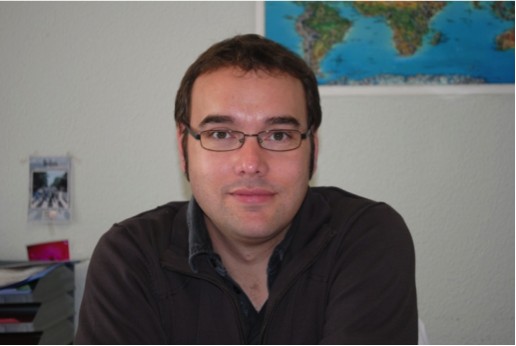 |
|
Salvador Conejero
Universidad de Sevilla-CSIC
Was born in Gijón, Spain. He studied Chemistry at the University of Oviedo, where he obtained his Ph.D. degree (2001) under the guidance of Prof. José Gimeno and Prof. Mª Pilar Gamasa, in the field of ruthenium unsaturated carbene (vinylidene and allenylidene) chemistry. Soon after, he moved to the University of California-Riverside, where he spent a post-doctoral period (2002-2005) in the group of Prof. Guy Bertrand. There he was involved in the chemistry of stable carbenes. In 2005 he joined the group of Prof. Ernesto Carmona as a Ramón y Cajal researcher at the University of Seville – Instituto de Investigaciones Químicas (CSIC), working in the field of C-H bond activation reactions mediated by rhodium and iridium complexes. In 2007 he gained a position at the same place as a Tenured Scientist where he is currently developing his career. In 2007 he received the Royal Spanish Chemical Society Award for Young Chemists. His actual interests deal with organometallic chemistry and catalysis, particularly in C-H, H-H and B-H bond activation reactions mediated by late transition metals (mainly platinum) stabilized by N-heterocyclic carbenes, and the mechanistic aspects of these transformations.
|
|
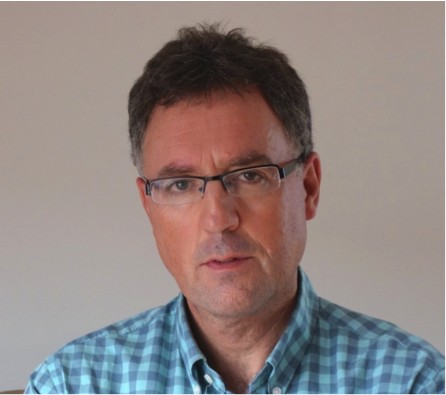 |
|
José Luis Mascareñas
Universidad de Santiago de Compostela
Completed his PhD at the University of Santiago in 1988. He was a postdoctoral fellow at Stanford University (USA) under the supervision of Prof. Paul Wender (1989-1990); and became permanent professor in 1993, and full professor in 2005, at the University of Santiago. He has been visiting scholar in Harvard University (USA) in the summers of 1992 and 1995, and visiting scientist in the University of Cambridge (UK, 2009) and the MIT (USA, 2013). In 2009 he received the Organic Chemistry award of the Spanish Royal Society of Chemistry, and in 2013 the advanced grant ERC award of the UE. His current research interests are split between a synthesis program focused on the development of metal- catalyzed processes, and a chem-bio program aimed at designing new nucleic acid and protein recognition and sensing tactics.
|
|
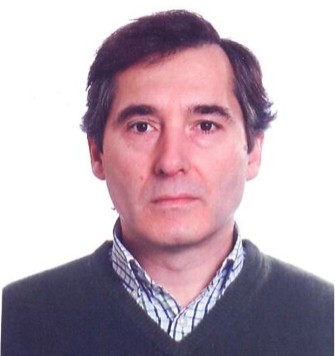
|
|
Miguel A. Ruiz
Universidad de Oviedo
Studied Chemistry at the Universidad de Valladolid and obtained his doctorate at Universidad de Oviedo in 1985 under the supervision of Prof. Riera. The following years, he was involved in postdoctoral studies at University of Bristol under the supervision of Prof. Stone. In 1988 returns to Universidad de Oviedo and becomes part of the staff until present data. His research interests are synthesis and reactivity of dinuclear complexes with multiple bonds M-M and their synergy with other functionalities, such as multiple bonds M-C and M-P, with special emphasis on the activation of other chemical bonds.
|
|
 |
|
Peter J. Sadler
Warwick University
Obtained his BA, MA and DPhil at the University of Oxford. Subsequently he was a Medical Research Council Research Fellow at the University of Cambridge and National Institute for Medical Research. From 1973-96 he was Lecturer, Reader and Professor at Birkbeck College, University of London, and from 1996-2007 Crum Brown Chair of Chemistry at the University of Edinburgh. In June 2007 he took up a Chair in Chemistry at the University of Warwick and was Head of Department for 3 years. He is a Fellow of the Royal Society of Edinburgh (FRSE) and the Royal Society of London (FRS), a European Research Council Advanced Investigator, and Mok Hing-Yiu Distinguished Visiting Professor at the University of Hong Kong. His research interests are centred on the chemistry of metals in medicine.
Recently he has been Marlies and Hans Zimmer International Scholar at the University of Cincinnati, Davison Lecturer at MIT, Distinguished Lecturer at Roger Williams University, Rhode Island, Glenn Seaborg Lecturer at the University of California, Berkeley, and Australian Academy of Science Selby Fellow.
|
|
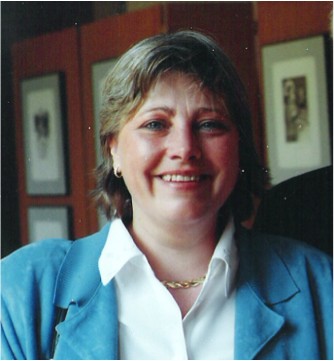 |
|
Cristina Tejel
Universidad de Zaragoza
Studied chemistry at the University of Zaragoza from 1976-1981, where she obtained her PhD in 1986. After a postdoctoral stay in the group of Prof. Cassoux in Toulouse/France (1989-1990), she returned as ‘cientifico titular’ (CSIC) to the Instituto de Ciencia de Materiales de Aragón (ICMA, a mixed institute UZ-CSIC) in 1990. There she has been involved in several research activities such as the synthesis of polynuclear compounds with and without metal-metal bonds, C-Cl bond activation reactions, and dynamic studies by NMR spectroscopy. In 2003, she was promoted to ‘investigador científico’ (CSIC). Presently, she is interested in the syntheses of new organometallic complexes that display unusual coordination modes, looking for catalytic applications and conducting mechanistic investigations. Studies are carried out on fundamental aspects of molecular oxygen activation and transfer to organic substrates. Related interests include the use of non-innocent ligands as electron reservoirs or the search of metals in unusual geometries, specifically aiming at the development of new catalytic reactions.
|
|
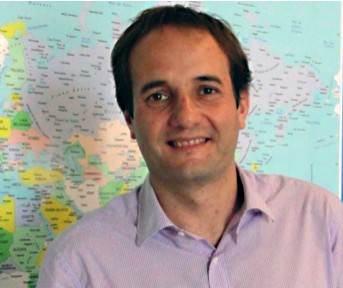 |
|
Jorge J. Carbó
Universitat Rovira i Virgili
Was born in Vilafranca del Penedès (Spain) and graduated in chemistry at the Rovira i Virgili University (Tarragona, Spain). He obtained the Ph. D. in 2002 at the Autonomous University of Barcelona (Spain) under the supervision of Prof. Agustí Lledós and Dr. Carles Bo. This period included predoctoral stays at the Université de Montpellier (France), University of Memphis (USA) and Technological University of Eindhoven (The Nederlands). From 2002 to 2004, he did a postdoctoral stay with Professor Peter Hofmann at the University of Heidelberg (Germany). After a short postdoctoral stay in group of Dr. C. Bo at the Institute of Chemical Research of Catalonia (ICIQ) in 2004, he became Tenure Track Lecturer at the Rovira i Virgili University (Tarragona) and in 2008 he was appointed Associate Professor in Physical Chemistry. He also held at invited professorship at the Université de Strasbourg (France, 2011). His research activity concerns the application and development of computational tools to the study of transition metal-based molecular systems with special interest in reactivity and homogenous catalysis.
|
|
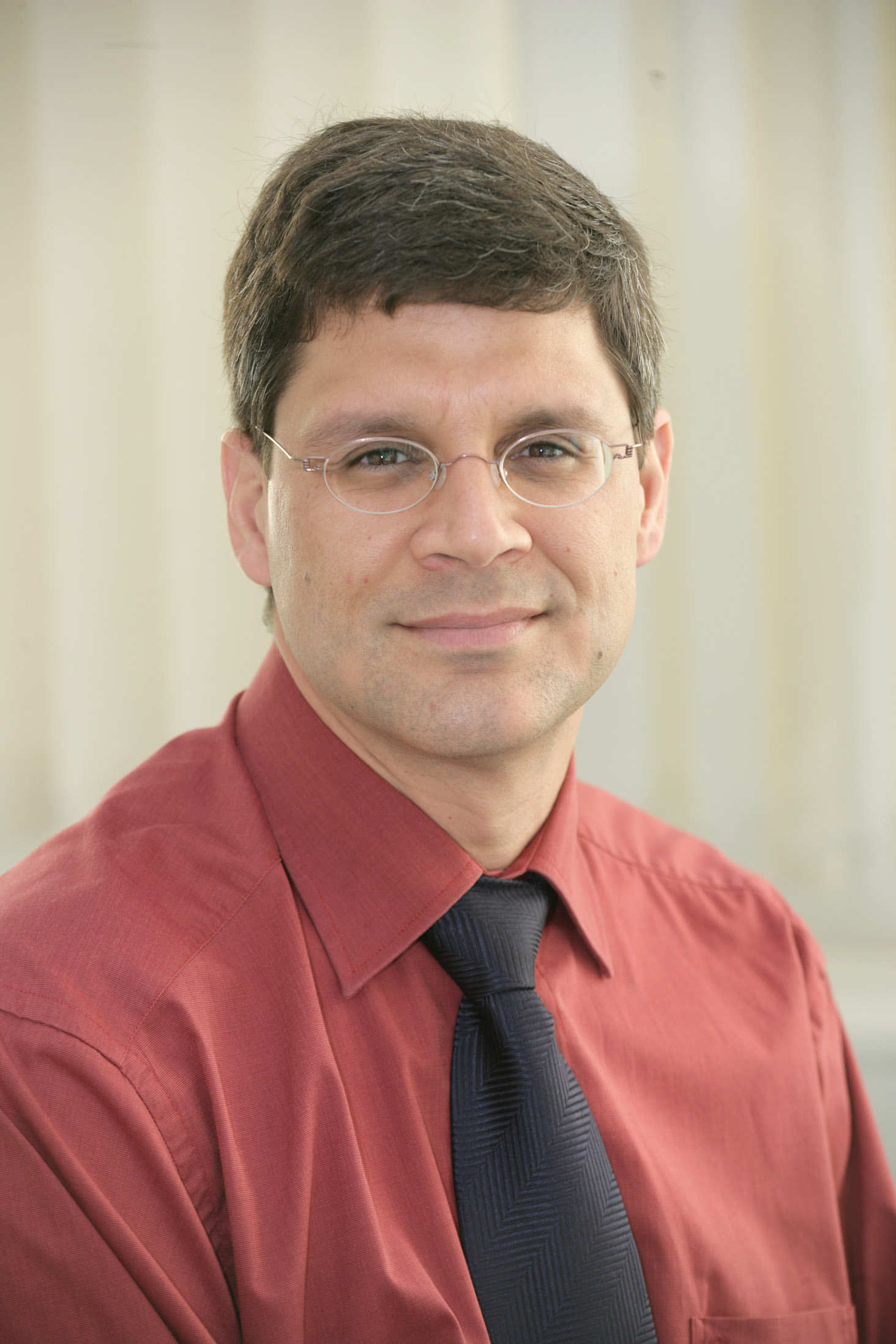 |
|
Rocco Paccielo
CaRLa-BASF-Catalysis Research Laboratory. Heidelberg, Alemania
Completed his Ph.D degree in 1987 at the California Institute of Technology under the direction of Professor John Bercaw. He spent two years as a Humboldt research fellow in Professor Wolfgang Herrmann's group at the Technical University in Munich. In 1989, he became a research chemist at DuPont CR&D in Wilmington, Delaware. In 1992, he moved to BASF in Ludwigshafen, Germany. After working as a research chemist and assistant plant manager, he became senior research manager and is presently responsible for homogeneous catalysis research. His research interests are focused on finding new technical applications of transition metal catalyzed homogeneous catalysis (e.g., hydroformylations, carbonylations, hydrogenations, olefin synthesis, C-C-coupling). Areas of recent interest have been asymmetric synthesis and CO2-hydrogenation.
|
|
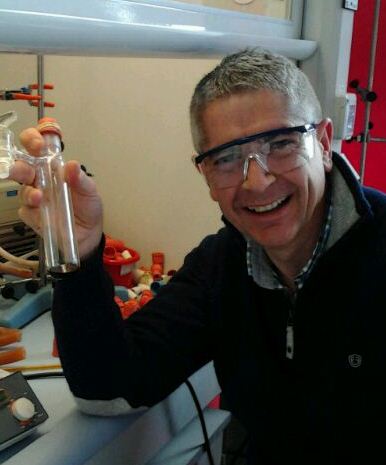 |
|
Tomás R. Belderrain
Universidad de Huelva
Graduated in Chemistry in 1989 and received his Ph.D. degree in Chemistry (1994) at the Universidad de Sevilla, under the supervision of Prof. Ernesto Carmona. He continued his scientific education as a postdoctoral fellow with Professor Claudio Bianchini (1995) in Florence, Italy, and Professor Robert H. Grubbs, at Caltech, Pasadena, USA (1996–97). In 1997 he moved to the Universidad de Huelva (Spain), where he became Lecturer (2000) and finally Professor of Inorganic Chemistry (2011). His research interests are related to processes in which carbon-carbon bond formation occurs, using copper, palladium and nickel complexes as potential catalysts.
|
|
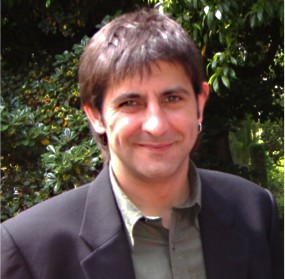 |
|
Jose A. Mata
Universidad de Castellón
Obtained his graduate in Chemistry by Universidad de Valencia in 1997 and his doctorate by Universidad Jaume I de Castellón in 2002. He developed postdoctoral studies at University of Yale with Prof. Robert H. Crabtree and CNRS with Prof. Prof. Rinaldo Poli. He returned to the Universidad Jaume I de Castellón as a Ramon y Cajal contract and currently he is associate professor from 2010. His scientific interests are centered on the design of N-hetercyclic carbene ligands, as well as the development of tandem catalytic processes. He is also studying the activation of C-F bonds and the heterogeneization of molecular catalytic systems
|
|
 |
|
Babil Menjón
Universidad de Zaragoza-CISIC
Was born 1959 in Tauste (Zaragoza, Spain). He obtained his PhD on organoplatinum chemistry at the UniZar under the supervision of Prof. R. Usón and Prof. J. Forniés in 1985. He made post-doctoral stays first at the Technische Universität München (Germany) with Prof. W. A. Herrmann (1986–87) and then at the Universität Würzburg with Prof. G. Erker (1988), where he became acquainted with the chemistry of early transition metals. He is now Research Scientist at the I.S.Q.C.H. (C.S.I.C.–UniZar). His research interest is focused on the synthetic aspects of organotransition-metal compounds.
|
|
|
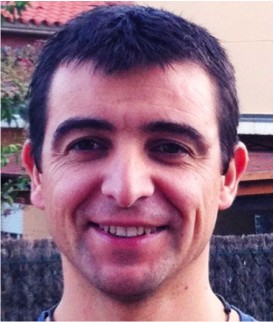 |
|
Xavi Ribas
Universitat de Girona
Obtained his B. Sc. Chemistry degree at University of Girona in 1996, and his PhD in Chemistry at University of Girona in 2001. He was involved in postdoctoral studies at at Institute of Material Science of Barcelona (ICMAB-CSIC) (2002-2004). He obtained a Juan de la Cierva grant in 2005 and Associate professor possition in Chemistry at University of Girona from 2006 until present time. He was awarded by ICREA-Acadèmia Award from Generalitat de Catalunya (2001) and Starting Grant project from the European Research Council (2011).
His research is focused on in-depth mechanistic understanding of the organometallic chemistry of copper, and specially the fundamental Cu(I)/Cu(III) redox process. He is interested in copper-catalyzed reactions for organic transformations, i.e. C-C and C-heteroatom cross-coupling reactions, C-H activation with directing groups. Other research interests fall in the field of high oxidation states of other transition metals, and their involvement in organic transformations (i.e., C-H functionalization, alkane and alkene oxidations), as well as development of nanocages for catalysis and host-guest reactions.
The research group of Dr Ribas was established in 2006, and since then it has published more than 60 papers (h index 23), 4 book chapters and is the editor of the book entitled “C-H and C-X functionalization. Transition metal mediation”, published by RSC-Publishing in 2013.
|
